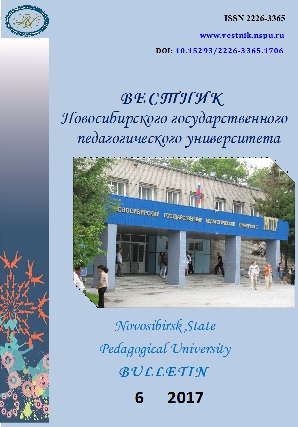Адаптация детей-инофонов, билингвов и мигрантов в образовательных организациях как условие эффективной интеграции в российское общество
Adaptation of Speakers of other languages, Bilingual, and Migrant children to education settings as a condition for their effective integration into Russian society
Author(s): Nadezhda Nikolaevna Kasenova, Natalya Viktorovna Kergilova, Aleksandr Mikhailovich EgorychevSubject(s): State/Government and Education, Inclusive Education / Inclusion, Sociology of Education
Published by: Новосибирский государственный педагогический университет
Keywords: Inophones children; Bilingual children; Children-migrants; Adaptation; Migration of population; Interethnic communication of the teacher
Summary/Abstract: Introduction. The article discusses the problem of linguistic and sociocultural adaptation of children to education settings as a condition for their effective integration into Russian society. The purpose of this article is to identify favorable conditions contributing to successful adaptation of speakers of other languages, bilingual, and migrant children to Russian education settings. Materials and Methods. The authors rely on systemic and axiological approaches to investigating educational processes and phenomena. The research methodology includes a review of scientific literature and an analytical approach to solving problems on the basis of works by foreign and domestic scholars on linguistic and socio-cultural adaptation of children to education settings in the context of migration. Results. The article clarifies the concepts of "children-speakers of other languages", "bilingual children", and "migrant children", identifies the essential and specific features of their language and socio-cultural adaptation to education settings. The authors identify capabilities of education settings working with these categories of children. The definition of the concept "adaptation of speakers of other languages, bilingual, and migrant children" is provided. The authors highlight the most important conditions for effective adaptation of such categories of children to Russian education settings and determine the ways of successful adaptation. Conclusions. The findings suggest that successful adaptation of speakers of other languages, bilingual and migrant children to education settings should be based on existing Russian and foreign experience and modern educational technologies.
Journal: Вестник Новосибирского государственного педагогического университета
- Issue Year: 7/2017
- Issue No: 6
- Page Range: 101-112
- Page Count: 12
- Language: Russian

